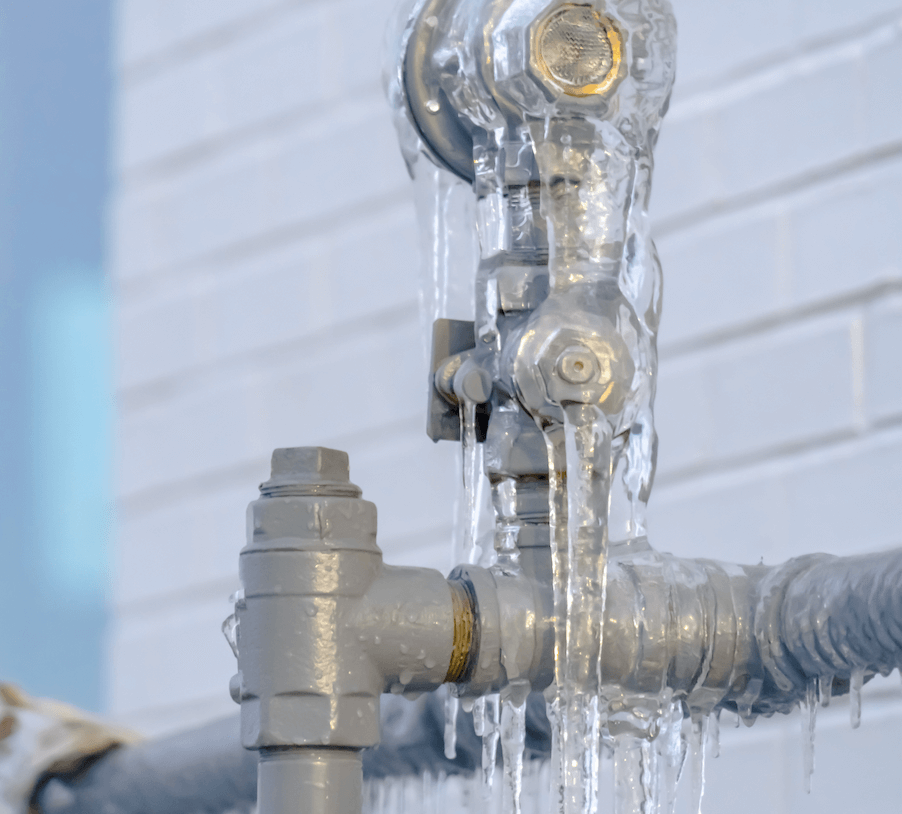Crucial Tips to Avoid Frozen Plumbing in Winter: Expert Insights
Crucial Tips to Avoid Frozen Plumbing in Winter: Expert Insights
Blog Article
The publisher is making a number of good points on Winter Plumbing Precautions: Preventing Frozen Pipes in general in this post down the page.

Cold weather can damage your pipes, especially by freezing pipelines. Right here's just how to prevent it from occurring and what to do if it does.
Introduction
As temperatures drop, the threat of frozen pipelines rises, potentially resulting in pricey repair work and water damage. Comprehending how to prevent icy pipelines is essential for homeowners in chilly environments.
Understanding Icy Pipelines
What causes pipelines to ice up?
Pipes freeze when subjected to temperatures listed below 32 ° F (0 ° C) for prolonged periods. As water inside the pipes freezes, it broadens, taxing the pipe walls and potentially creating them to break.
Dangers and problems
Frozen pipelines can cause water interruptions, residential property damage, and costly repairs. Burst pipelines can flooding homes and cause substantial architectural damage.
Indications of Frozen Piping
Determining icy pipelines early can stop them from bursting.
How to determine icy pipelines
Seek decreased water flow from faucets, unusual odors or noises from pipes, and visible frost on exposed pipes.
Avoidance Tips
Protecting prone pipes
Wrap pipelines in insulation sleeves or utilize warm tape to secure them from freezing temperatures. Concentrate on pipes in unheated or external locations of the home.
Heating techniques
Maintain interior spaces appropriately warmed, particularly areas with pipes. Open closet doors to enable cozy air to distribute around pipes under sinks.
Securing Outside Pipes
Garden hoses and outside taps
Disconnect and drain pipes garden hoses prior to winter. Set up frost-proof faucets or cover outdoor faucets with protected caps.
What to Do If Your Pipes Freeze
Immediate actions to take
If you believe icy pipes, keep taps open to ease stress as the ice thaws. Make use of a hairdryer or towels taken in warm water to thaw pipes slowly.
Long-Term Solutions
Architectural adjustments
Consider rerouting pipes away from exterior wall surfaces or unheated areas. Include additional insulation to attics, basements, and crawl spaces.
Updating insulation
Invest in top quality insulation for pipes, attic rooms, and walls. Appropriate insulation helps maintain constant temperature levels and minimizes the risk of icy pipelines.
Conclusion
Preventing icy pipelines needs aggressive steps and fast responses. By recognizing the reasons, signs, and safety nets, house owners can protect their pipes during winter.
Helpful Tips to Prevent Frozen Pipes this Winter
UNDERSTANDING THE BASICS: WHY PIPES FREEZE AND WHY IT’S A PROBLEM
Water freezing inside pipes is common during the winter months, but understanding why pipes freeze, and the potential problems it can cause is crucial in preventing such incidents. This section will delve into the basics of why pipes freeze and the associated problems that may arise.
THE SCIENCE BEHIND FROZEN PIPES
When water reaches freezing temperatures, it undergoes a physical transformation and solidifies into ice. This expansion of water as it freezes is the primary reason pipes can burst. As the water inside the pipe freezes, it expands, creating immense pressure on the walls. If the pressure becomes too great, the pipe can crack or rupture, leading to leaks and water damage.
FACTORS THAT CONTRIBUTE TO PIPE FREEZING
Low Temperatures: Extremely cold weather, especially below freezing, increases the risk of pipes freezing. Uninsulated or Poorly Insulated Pipes: Pipes located in unheated areas, such as basements, crawl spaces, or attics, are more prone to freezing. Insufficient insulation or lack of insulation altogether exacerbates the problem. Exterior Wall Exposure: Pipes running along exterior walls are susceptible to freezing as they encounter colder temperatures outside. Lack of Heating or Temperature Regulation: Inadequate heating or inconsistent temperature control in your home can contribute to frozen pipes. PROBLEMS CAUSED BY FROZEN PIPES
- Pipe Bursting: As mentioned earlier, the expansion of water as it freezes can cause pipes to burst, resulting in significant water damage.
- Water Damage: When pipes burst, it can lead to flooding and water damage to your property, including walls, ceilings, flooring, and personal belongings.
- Structural Damage: Prolonged exposure to water from burst pipes can compromise the structural integrity of your home, leading to costly repairs.
- Mold and Mildew Growth: Excess moisture from water damage can create a favorable environment for mold and mildew growth, posing health risks to occupants.
- Disrupted Water Supply: Frozen pipes can also result in a complete or partial loss of water supply until the issue is resolved.
WHY CERTAIN PIPES ARE MORE PRONE TO FREEZING
- Location: Pipes located in unheated or poorly insulated areas, such as basements, crawl spaces, attics, or exterior walls, are at higher risk of freezing.
- Exterior Pipes: Outdoor pipes, such as those used for irrigation or exposed plumbing, are particularly vulnerable to freezing as they are directly exposed to the elements.
- Supply Lines: Pipes that carry water from the main water supply into your home, including the main water line, are critical to protect as freezing in these lines can affect your entire plumbing system.
- Underground Pipes: Pipes buried underground, such as those connected to sprinkler systems or outdoor faucets, can be susceptible to freezing if not properly insulated.
https://busybusy.com/blog/helpful-tips-to-prevent-frozen-pipes-this-winter/

I am very focused on Prevent Frozen Pipes and I really hope you appreciated the blog entry. If you please take a moment to share this entry if you liked it. I value your readership.
View Website Report this page